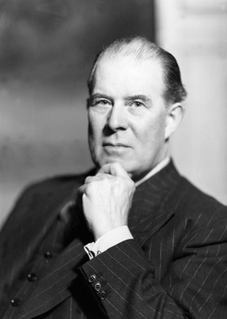A Quote by Marcel Proust
We do not receive wisdom, we must discover it for ourselves, after a journey through the wilderness which no one else can make for us, which no one can spare us, for our wisdom is the point of view from which we come at last to regard the world. The lives that you admire, the attitudes that seem noble to you, have not been shaped by a paterfamilias or a schoolmaster, they have sprung from very different beginnings, having been influenced by evil or commonplace that prevailed round them. They represent a struggle and a victory.
Quote Topics
Admire
After
Attitudes
Been
Beginnings
Come
Commonplace
Different
Discover
Else
Evil
Having
Influenced
Journey
Last
Lives
Make
Must
Noble
Our
Ourselves
Point
Point Of View
Receive
Regard
Represent
Round
Seem
Shaped
Spare
Sprung
Struggle
Them
Through
Us
Very
Victory
View
Which
Wilderness
Wisdom
World
Related Quotes
Wisdom cannot be imparted. Wisdom that a wise man attempts to impart always sounds like foolishness to someone else ... Knowledge can be communicated, but not wisdom. One can find it, live it, do wonders through it, but one cannot communicate and teach it.”
- Hermann Hesse, Siddhartha "We don't receive wisdom; we must discover it for ourselves after a journey that no one can take for us or spare us from.
If we wish to be free; if we mean to preserve inviolate those inestimable privileges for which we have been so long contending; if we mean not basely to abandon the noble struggle in which we have been so long engaged, and which we have pledged ourselves never to abandon until the glorious object of our contest shall be obtained - we must fight! I repeat it, sir, we must fight! An appeal to arms, and to the God of hosts, is all that is left us.
As the Deity has given us Greeks all other blessings in moderation, so our moderation gives us a kind of wisdom which is timid, in all likelihood, and fit for common people, not one which is kingly and splendid. This wisdom, such as it is, observing that human life is ever subject to all sorts of vicissitudes, forbids us to be puffed up by the good things we have, or to admire a man's felicity while there is still time for it to change.
When we are in love, our love is too big a thing for us to be able altogether to contain it within ourselves. It radiates towards the loved one, finds there a surface which arrests it, forcing it to return to its starting-point, and it is this repercussion of our own feeling which we call the other's feelings and which charms us more then than on its outward journey because we do not recognise it as having originated in ourselves.
There are some places which, seen for the first time, yet seem to strike a chord of recollection. "I have been here before," we think to ourselves, "and this is one of my true homes." It is no mystery for those philosophers who hold that all which we shall see, with all which we have seen and are seeing, exists already in an eternal now; that all those places are home to us which in the pattern of our life are twisting, in past, present and future, tendrils of remembrance round our heart-strings.
Knowledge itself is a neutral tool that can be used for good or evil. Wisdom, in contrast, always directs us toward happiness. The task of education must be to stimulate and unleash the wisdom that lies dormant in the lives of all young people. This is not a forced process, like pressing something into a preformed mold, but rather drawing out the potential which exists within.
Doubt is the vestibule which all must pass before they can enter into the temple of wisdom; therefore, when we are in doubt and puzzle out the truth by our own exertions, we have gained a something that will stay by us, and which will serve us again. But, if to avoid the trouble of the search we avail ourselves of the superior information of a friend, such knowledge will not remain with us; we have not bought but borrowed it.
Balance is the key to my serenity. I attain balance by listening to my inner wisdom and to the wisdom of others. There is no situation in which I cannot find a point of balance. There is no circumstance in which I cannot find inner harmony. As I ask to be led into equilibrium and clarity, I will find that my answers come to me. I am wiser than I know, more capable of right action and attitudes than I yet believe. In every event, I seek the balance point of God's action through me.

































